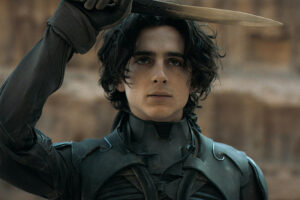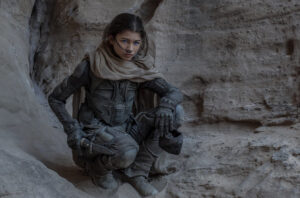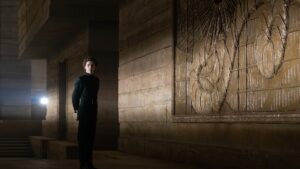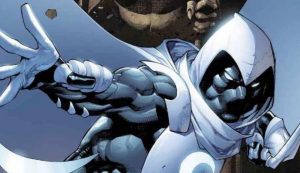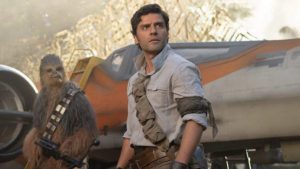Frank Herbert’s 1965 novel Dune is often described as the science-fiction equivalent to J.R.R. Tolkien’s epic fantasy The Lord Of The Rings – not only because both works are immense, richly detailed, and lore-heavy, but because both are widely regarded as having redefined the boundaries of their respective genres and left an indelible influence on future works in those genres. We could spend all day arguing about whether Dune merely repackaged the ideas and themes of Isaac Asimov’s Foundation into something more friendly to the 1960’s counterculture movement, but that’s beside the point because I’m not here to review the book.

This weekend, director Denis Villeneuve’s long-awaited adaptation of Dune finally hit screens both big and small, introducing Herbert’s story to the world at large – and it’s a momentous occasion for fans who long thought the novel to be “unfilmable”. The same word was used of The Lord Of The Rings once upon a time, and both novels were unsuccessfully adapted only a few years apart from each other (1978 for Ralph Bakshi’s animated The Lord Of The Rings, and 1984 for David Lynch’s bizarre Dune), lending credence to the theory that both stories were too vast and intricate and reliant on still-rudimentary CGI to work onscreen.
But even though Peter Jackson came along and proved that The Lord Of The Rings could work when divided up into a trilogy of monumental proportions, it’s taken twenty more years for Dune to enjoy the same treatment. Denis Villeneuve’s film only covers the first half of Herbert’s original novel, a bold but risky choice given that Villeneuve isn’t filming his entire saga simultaneously, the way Jackson did. Granted, I can’t imagine that Warner Brothers will pass up the opportunity to try and shape Dune into a sci-fi franchise rivaling Disney’s Star Wars, and this is the same company that is recklessly plowing forward with the Fantastic Beasts franchise despite the mounting evidence that no one cares, but Dune is a totally different beast.
This first section of the story has the daunting task of establishing Herbert’s sprawling ensemble cast of characters, the world of Arrakis, and the complex current geopolitical crisis in which two rival families find themselves entangled. If there’s any critical flaw in the film’s structure, it’s that the whole experience is a bit like watching people set up a board-game while you impatiently wait to play – but just as you sit down to start the game, the movie ends. Dune: Part One is not a stand-alone story. I can watch any of the films in The Lord Of The Rings trilogy and be thoroughly satisfied by the journey, but Dune: Part One has no self-contained thematic or emotional through-line of its own.
Theoretically, I suppose it’s a smart business move. Dune: Part One not only demands a sequel, but requires one. And regardless, it deserves one. Denis Villeneuve has spared no effort in ensuring that Herbert’s world feels like a fully realized location, and now that the board is set and the pieces are in motion, the game is free to unfold across a canvas rich with carefully considered detail and texture. And make no mistake, there’s already plenty of spectacular action and interpersonal drama in Dune: Part One – Villeneuve is padding out the first half of the book, but he’s doing so with as much consideration for what audiences want from a blockbuster as for what readers want out of the story and its extensive lore.
Dune is epic on a scale that Star Wars has only rarely reached in over forty years of dominating mainstream sci-fi. Villeneuve envisions a universe where everything is impossibly large. The unseen Emperor is a god-king; the royal houses of Atreides and Harkonnen are arranged like small armies in their rigid hierarchy of power; their palaces are the size of cities; their starships are geometric monoliths too great to be housed on land – when the fleets of House Atreides depart Caladan for Arrakis, they rise from under the ocean like continents ripping off the planet’s surface. And our protagonist, the tormented Paul Atreides (Timothée Chalamet), is born into a societal structure where he’s expected to ascend to that level, to become a superhuman befitting of his family’s legacy.
But although Paul struggles with those expectations even back on Caladan, it’s only when he’s thrust into the harsh and unforgiving deserts of Arrakis by necessity that he finally begins to grasp how small he truly is in the grand scheme of things. Unfortunately, we don’t get to spend very long in the desert ruminating on this revelation before the movie’s over, and ironically it’s the least visually interesting environment in Dune. Deserts, even on our humble planet, are vibrant habitats, and you’d think that the deserts of alien worlds – deserts populated by giant sand-worms, no less – would provide fertile ground for more arresting visuals than what the film actually offers. As far as sci-fi deserts go, Tatooine still takes the cake with its binary sunset. Sorry.
This is partly a result of Dune‘s spartan color palette. The film is so austere that in the hands of a lesser director and cinematographer, it could easily have been rendered irredeemably dreary or monotonous – but with Villeneuve and Greig Fraser working on the film, Dune‘s bleakness serves a thematic purpose, accentuating the scars of Arrakis, a world being sucked dry of its natural resources by relentless capitalism and imperialism. Every rare flourish of color – whether it’s the vivid saffron of Lady Jessica (Rebecca Ferguson)’s dress when she first steps foot on Arrakis, or the flickering red and blue force-fields that warriors wear as shields in battle – is a welcome relief, like the sight of water in a barren desert.
For interior sequences, Fraser expertly manipulates light and shadow to fill in the empty spaces of Dune‘s many sets, which are largely devoid of ornamentation or extravagance by choice. Again, it’s all about playing up scale and starkness – you wouldn’t want to live in this world built for titans (unless you’re a hyper-minimalist, in which case don’t let me stand in your way), but you can’t help but marvel at it. House Atreides even dresses severely, with costume designers Jacqueline West and Bob Morgan deserving a special shoutout for turning in a wide variety of sleek militarized fits that feel fashionable yet forbidding. They are the outward face of ruthless, efficient, terrifying power.
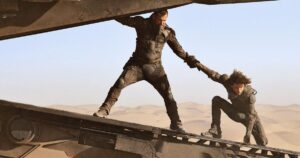
True power, however, lies in the hands of the Bene Gesserit, a cult of psychic sorceresses who operate behind closed doors, subtly manipulating galactic politics to further their own agenda – and to mark the distinction, they wear instantly iconic all-black outfits of their own, complete with some extraordinary headdresses. Lady Jessica is a member of the Bene Gesserit, and through her Paul Atreides inherits both a killer fashion sense and a couple of other abilities and special powers. The Bene Gesserit are massively important to Dune, but they have only a handful of scenes in Part One before departing for their own HBO Max series, their appearance bookended by Hans Zimmer’s haunting theme.
Zimmer’s score is brilliant for many reasons, but it’s the completely random use of Scottish bagpipes that really stuck out to me. And I don’t mean that bagpipes are just featured on the score. No, there’s a literal bagpipe-player in this movie, set thousands of years in the future, and all I can say without spoilers is that there’s one scene where those bagpipes kick in and start playing the House Atreides theme, and if I were a hardcore Dune fan I feel like that would be my Ride of the Rohirrim moment.
But the unexpected Scottish influence on Villeneuve’s Dune is all the more bizarre when coupled with this adaptation’s erasure of the MENA (Middle Eastern and North African) and Muslim influences that exist in Frank Herbert’s original novel and inform on some level almost every aspect of his story, its themes, and its worldbuilding. How Herbert interacts with those influences in his novel is cause for frequent discussion, and how that resonates with MENA and Muslim readers is a matter of personal opinion, but that those influences exist is indisputable. Villeneuve’s adaptation makes little effort to engage with those influences beyond a surface-level, which is disappointingly predictable given that no MENA and Muslim writers worked on the film.
Even in front of the camera, MENA people are relegated to background roles on Villeneuve’s Arrakis, while their cultures and languages are used to embellish the film’s aesthetic and exposition-heavy dialogue. There are a few prominent roles for actors of color, including Sharon Duncan-Brewster as the intrepid ecologist Liet Kynes and Chang Chen as House Atreides’ personal physician Wellington Yueh, but their presence doesn’t make up for the absence of MENA talent onscreen.
So who is onscreen? Timothée Chalamet is mesmerizing as Paul Atreides, crafting a character here who is equal parts as boyish and charming as Luke Skywalker, imbued with the ethereal elegance of Frodo Baggins, and wracked by an inner darkness that is all his own to bear. Interestingly, neither Mark Hamill nor Elijah Wood was a particularly seasoned actor when they took on the defining roles of their careers, but Chalamet is already at a point where he’s capable of bringing out all of the nuance and fiery emotion required from his Paul with delicate skill and precision. Chalamet and Ferguson make for a convincing mother-son duo who are at their most formidable when bouncing off each other.
Other highlights include Oscar Isaac as Duke Leto Atreides, who can’t help but heat up the whole movie with his natural warmth and charisma, and that’s even before he gets fully nude (though to be honest in the rigid pose and harsh lighting that the scene requires, his body has a certain El Greco quality that emphasizes Isaac’s sinews over his sexuality). Jason Momoa’s bearish build and easygoing attitude makes him a comfortable fit for the character of Duncan Idaho, although some of his line-readings feel stiff. Charlotte Rampling is a powerhouse as the enigmatic Reverend Mother Gaius Helen Mohiam. And David Dastmalchian makes a strong impression in the small role of Piter de Vries, a human computer programmed with a strain of Harkonnen cruelty.
In an ensemble cast this large, there’s always going to be one or two actors who aren’t given space to exercise their talents to the fullest, and in Dune: Part One sadly that’s Josh Brolin. His Gurney Halleck is largely a blank slate throughout the film, and Brolin doesn’t bring much personality or vigor to the role, which was previously filled by Sir Patrick Stewart in the 1984 adaptation. Stellan Skarsgård, meanwhile, is unable to elevate the villainous character of Baron Vladimir Harkonnen above a kind of grotesque caricature, which robs the incomplete story of a particularly compelling antagonist; the Baron’s nephew Beast Rabban, played by Dave Bautista, is a generic muscly henchman.
And despite being hyped up in all of the marketing for this film as Chalamet’s costar, Zendaya is hardly in Dune: Part One at all. Her role as the Fremen warrior Chani is mostly stitched together from several scattered dream sequences, and an opening voiceover in which she concisely lays out the troubled history of Arrakis, making her appearance here little more than a glorified cameo. Going forward, Zendaya will have plenty of opportunities to shape Chani into a fully three-dimensional character onscreen, but she’s only just getting started.
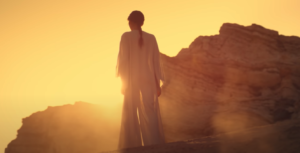
And so is our journey as fans. Dune: Part One is only a sample of what Frank Herbert’s world has to offer. Like the back-cover blurb on a novel, it exists to entice you into the story with a lot of tantalizing hints, partly sketched-out ideas, and bold promises, all designed to leave the viewer urgently wanting more, but it’s not a satisfying stand-alone story of its own. And when Villeneuve’s Dune saga is finally complete and available to be viewed in its totality, whether or not it’s the masterpiece of sci-fi cinema that I believe it can be, I’m not sure yet if anyone will choose to watch Part One separately from the others, or that it will be beloved purely on its own merits. Everything there is to love about this movie (and make no mistake, there’s a lot) is stuff that I hope to see expanded upon or even improved upon in the sequels, whenever they come.
Movie Rating: 8.9/10
